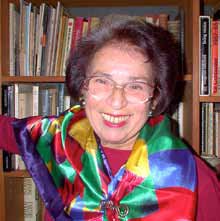
EIGHTEEN MONTHS AGO as I write, I lost at one blow my closest friend, my most stimulating professional colleague, my longtime traveling companion, my authority on questions of opera, ballroom dancing, cooking, politics and biochemistry, and my most formidable tennis partner. Indeed, early in January 2009 Rose Johnstone and I were playing a hard game of singles on court 2 at the Weizmann Institute sports facility, and in July of the same year I was with her when she died at the Jewish General Hospital in Montreal, surrounded by her loved ones, her life extinguished by a particularly virulent form of cancer.
I first met Rose in 1975 when she spent a short sabbatical at the Weizmann Institute working in my laboratory, where she not only endeared herself to one and all but successfully completed, in record time, a study of an important effect of light on a particular salt-loving bacterium. This study was much facilitated by her mastery of Yiddish which enabled her to captivate the elderly and irascible technician who was then in charge of the radioactive counting equipment, and thereby consistently jump the queue.
Not long after this, in 1980, she was appointed Chairman of the Department of Biochemistry at McGill University in Montreal, and remained in that capacity until 1990, being named to the Gilman Cheney Chair in Biochemistry in 1985. In 1995, when both of us were widowed, lonely and retiring, we met again. Then began what was for me a singularly delightful period of my life: winters spent together at the Weizmann and summers spent together at McGill. By then science was a hobby for each of us and there was no shortage of collaborators at both ends.
But for Rose, Israel held additional charms. She had become addicted to archeology during her first visit and she introduced me to the wonderful series of weekly lectures in English on different aspects of archaeology at Tel Aviv University. We went on many fascinating trips to archeological sites together with this class. Furthermore, as a person with a strong social conscience, Rose joined the board of ESRA in Rehovot and threw herself into organizing lectures on scientific topics she thought would be of interest to a lay audience. She persuaded many of the “stars” at the Weizmann to volunteer lectures and often managed to organize lecture theaters for the purpose on campus, even pinning up signs on trees and buildings to direct the public to these rooms. Latterly, she gave lectures on diet for the Rehovot ESRA and other groups, and was in the midst of a mini-course on biochemistry for laymen wishing to understand the host of medications on the market when she fell ill and had to return posthaste to Canada.
Rose Johnstone was born Rose Mamelak in 1928 in Lodz, Poland. She immigrated to Montreal with her family in 1936 and spent her early years living in extremely humble circumstances, the second of four siblings. A scholarship enabled her to obtain a secondary education at the Baron Byng high school. During summer vacations she worked as a nurses’ aid at the Montreal Neurological Institute, and this decided her to look for a professional career as a technical assistant. However, on finishing high school she applied to McGill to follow a program in science. She was accepted, promising her family to find her own sources of money - loans, grants, scholarships and summer jobs. She completed her studies with biochemistry as a major, obtaining her B.Sc. with first class honors in 1950.
At the time she graduated, the most distinguished biochemist at McGill University was Juda Hirsch Quastel, a Fellow of the Royal Society who was also a Governor of the Hebrew University (one of his sons, Michael, became Professor of Nuclear Medicine at Ben-Gurion University and incidentally was often seen in performances by the Light Opera Group of the Negev.) Rose applied to work with Quastel, who headed the McGill-Montreal General Hospital Research Institute. She was accepted and in 1953 she completed her Ph.D. degree under Quastel’s supervision. This led to a one-year postdoctoral fellowship in the same laboratory, during which she married Douglas Johnstone, a fellow left-wing political activist. Then in 1954 she was awarded a fellowship by the National Cancer Institute of Canada which provided the funds for her to work for a year at the National Institute of Medical Research at Mill Hill in London, England, followed by two further six-month spells in English laboratories: the Chester Beatty Research Institute in London and the Strangeways Research Laboratory in Cambridge. This gave her an opportunity to meet some of England's foremost scientists.
In 1956 Quastel offered Rose a position as Research Associate at her old place of work, and the Johnstones plus a baby son (the first of two) returned to Montreal. In 1961 Rose joined the Department of Biochemistry at McGill as an assistant professor, and remained there in various capacities until the end of her life, becoming an associate professor in 1966 and a full professor in 1977.
Rose was deeply concerned with the social problems associated with the pursuit of a scientific career in academia, especially those relating to women. Hence she sat on countless committees, both internal and external, and was eventually elected to the University Senate. She was a member of the Committee on Status of Women at McGill, she was on the Academic Policy Committee of the University, and there were many, many more examples of service to the community. In addition, she was at different times, among other functions, president of the Montreal Physiological Society, president of the Canadian Biochemical Society, and secretary treasurer of the International Association for Women Bioscientists. Among the honors bestowed upon her was her election in 1987 to the Royal Society of Canada, of which she was treasurer during the years 1991-1994. She trained 25 graduate students and postdoctoral fellows, of whom 12 currently hold academic positions, and published over 130 scholarly articles.
She was a warm and generous spirit, a gracious companion with a keen sense of humor and a huge appetite for life. She valued equality and could not tolerate social injustice. In Israel, she won the affection of the many people with whom she came in contact, both professionally and socially. To her family and friends she was a fount of wisdom to which they were always free to turn. She was deeply loved and is sorely missed.
Donations in her honor should be made to the ESRA fund “Scholarship Aid to Immigrant Students”, which would have been closest to her heart.
 dear editor 159 magazine
dear editor 159 magazine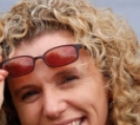 OVERNIGHT OAT & SESAME BARS
OVERNIGHT OAT & SESAME BARS IN THE SWIM
IN THE SWIM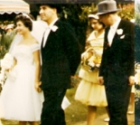 Bridesmaid recalls a very special day 59 years ago
Bridesmaid recalls a very special day 59 years ago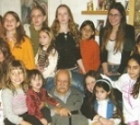 Harry Berman
Harry Berman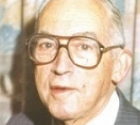 Sam Levin
Sam Levin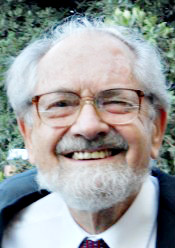 Roy Caplan
Roy Caplan